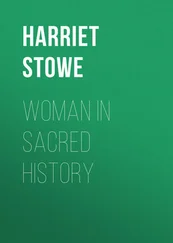Harriet Stowe - My Wife and I. Harry Henderson's History
Здесь есть возможность читать онлайн «Harriet Stowe - My Wife and I. Harry Henderson's History» — ознакомительный отрывок электронной книги совершенно бесплатно, а после прочтения отрывка купить полную версию. В некоторых случаях можно слушать аудио, скачать через торрент в формате fb2 и присутствует краткое содержание. ISBN: , Издательство: Иностранный паблик, Жанр: foreign_prose, foreign_language, на английском языке. Описание произведения, (предисловие) а так же отзывы посетителей доступны на портале библиотеки ЛибКат.
- Название:My Wife and I. Harry Henderson's History
- Автор:
- Издательство:Иностранный паблик
- Жанр:
- Год:неизвестен
- ISBN:http://www.gutenberg.org/ebooks/47874
- Рейтинг книги:5 / 5. Голосов: 1
-
Избранное:Добавить в избранное
- Отзывы:
-
Ваша оценка:
- 100
- 1
- 2
- 3
- 4
- 5
My Wife and I. Harry Henderson's History: краткое содержание, описание и аннотация
Предлагаем к чтению аннотацию, описание, краткое содержание или предисловие (зависит от того, что написал сам автор книги «My Wife and I. Harry Henderson's History»). Если вы не нашли необходимую информацию о книге — напишите в комментариях, мы постараемся отыскать её.
My Wife and I. Harry Henderson's History — читать онлайн ознакомительный отрывок
Ниже представлен текст книги, разбитый по страницам. Система сохранения места последней прочитанной страницы, позволяет с удобством читать онлайн бесплатно книгу «My Wife and I. Harry Henderson's History», без необходимости каждый раз заново искать на чём Вы остановились. Поставьте закладку, и сможете в любой момент перейти на страницу, на которой закончили чтение.
Интервал:
Закладка:
The bitter, silent, irrepressible anguish of that childish bereavement was to me the awakening of a spiritual nature. The little creature who, had she lived, might have grown up perhaps into a common-place woman, became a fixed star in the heaven-land of the ideal, always drawing me to look upward. My memories of her were a spring of refined and tender feeling, through all my early life. I could not then write; but I remember that the overflow of my heart towards her memory required expression, and I taught myself a strange kind of manuscript, by copying the letters of the alphabet. I bought six cents' worth of paper and a tallow candle at the store, which I used to light surreptitiously when I had been put to bed nights, and, sitting up in my little night-gown, I busied myself with writing my remembrances of her. I could not, for the world, have asked my mother to let me have a candle in my bed-room after eight o'clock. I would have died sooner than to explain why I wanted it. My purchase of paper and candle was my first act of independent manliness. The money, I reflected, was mine, because I earned it myself, and the paper was mine, and the candle was mine, so that I was not using my father's property in an unwarrantable manner, and thus I gave myself up to my inspirations. I wrote my remembrances of her, as she stood among the daisies and the golden lilies. I wrote down her little words of wisdom and grave advice, in the queerest manuscript that ever puzzled a wise man of the East. If one imagines that all this was spelt phonetically, and not at all in the unspeakable and astonishing way in which the English language is conventionally spelt, one may truly imagine that it was something rather peculiar in the way of literature. But the heart-comfort, the utter abandonment of soul that went into it, is something that only those can imagine who have tried the like and found the relief of it. My little heart was like the Caspian sea, or some other sea which I read about, which had found a secret channel by which its waters could pass off under ground. When I had finished, every evening, I used to extinguish my candle, and put it and my manuscript inside of the straw bed on which I slept, which had a long pocket hole in the centre, secured by buttons, for the purpose of stirring the straw. Over this I slept in conscious security, every night; sometimes with blissful dreams of going to brighter meadows, when I saw my Daisy playing with whole troops of beautiful children, fair as water lilies on the shore of a blue lake. Thus, while I seemed to be like any other boy, thinking of nothing but my sled, and my bat and ball, and my mittens, I began to have a little withdrawing room of my own; another land in which I could walk and take a kind of delight that nothing visible gave me. But one day my oldest sister, in making the bed, with domestic thoroughness, disemboweled my whole store of manuscripts and the half consumed fragment of my candle.
There is no poetry in housewifery, and my sister at once took a housewifely view of the proceeding —
"Well, now! is there any end to the conjurations of boys?" she said. "He might have set the house on fire and burned us all alive, in our beds!"
Reader, this is quite possible, as I used to perform my literary labors sitting up in bed, with the candle standing on a narrow ledge on the side of the bedstead.
Forthwith the whole of my performance was lodged in my mother's hands – I was luckily at school.
"Now, girls," said my mother, "keep quiet about this; above all, don't say a word to the boy. I will speak to him."
Accordingly, that night after I had gone up to bed, my mother came into my room and, when she had seen me in bed, she sat down by me and told me the whole discovery. I hid my head under the bed clothes, and felt a sort of burning shame and mortification that was inexpressible; but she had a good store of that mother's wit and wisdom by which I was to be comforted. At last she succeeded in drawing both the bed clothes from my face and the veil from my heart, and I told her all my little story.
"Dear boy," she said, "you must learn to write, and you need not buy candles, you shall sit by me evenings and I will teach you; it was very nice of you to practice all alone; but it will be a great deal easier to let me teach you the writing letters."
Now I had begun the usual course of writing copies in school. In those days it was deemed necessary to commence by teaching what was called coarse hand ; and I had filled many dreary pages with m's and n's of a gigantic size; but it never had yet occurred to me that the writing of these copies was to bear any sort of relation to the expression of thoughts and emotions within me that were clamoring for a vent, while my rude copies of printed letters did bear to my mind this adaptation. But now my mother made me sit by her evenings, with a slate and pencil, and, under her care, I made a cross-cut into the fields of practical handwriting, and was also saved the dangers of going off into a morbid habit of feeling, which might easily have arisen from my solitary reveries.
"Dear," she said to my father, "I told you this one was to be our brightest. He will make a writer yet," and she showed him my manuscript.
"You must look after him, Mother," said my father, as he always said, when there arose any exigency about the children, that required delicate handling.
My mother was one of that class of women whose power on earth seems to be only the greater for being a spiritual and invisible one. The control of such women over men is like that of the soul over the body. The body is visible, forceful, obtrusive, self-asserting. The soul invisible, sensitive, yet with a subtle and vital power which constantly gains control and holds every inch that it gains.
My father was naturally impetuous, though magnanimous, hasty tempered and imperious, though conscientious; my mother united the most exquisite sensibility with the deepest calm – calm resulting from habitual communion with the highest and purest source of all rest – the peace that passeth all understanding. Gradually, by this spiritual force, this quietude of soul, she became his leader and guide. He held her hand and looked up to her with a trustful implicitness that increased with every year.
"Where's your mother?" was always the fond inquiry when he entered the house, after having been off on one of his long preaching tours or clerical counsels. At all hours he would burst from his study with fragments of the sermon or letter he was writing, to read to her and receive her suggestions and criticisms. With her he discussed the plans of his discourses, and at her dictation changed, improved, altered and added; and under the brooding influence of her mind, new and finer traits of tenderness and spirituality pervaded his character and his teachings. In fact, my father once said to me, "She made me by her influence."
In these days, we sometimes hear women, who have reared large families on small means, spoken of as victims who had suffered unheard of oppressions. There is a growing materialism that refuses to believe that there can be happiness without the ease and facilities and luxuries of wealth.
But my father and mother, though living on a narrow income, were never really poor. The chief evil of poverty is the crushing of ideality out of life – the taking away its poetry and substituting hard prose; – and this with them was impossible. My father loved the work he did, as the artist loves his painting and the sculptor his chisel. A man needs less money when he is doing only what he loves to do – what, in fact, he must do, – pay or no pay. St. Paul said, "A necessity is laid upon me, yea, woe is me, if I preach not the gospel." Preaching the gospel was his irrepressible instinct, a necessity of his being. My mother, from her deep spiritual nature, was one soul with my father in his life-work. With the moral organization of a prophetess, she stood nearer to heaven than he, and looking in, told him what she saw, and he, holding her hand, felt the thrill of celestial electricity. With such women, life has no prose; their eyes see all things in the light of heaven, and flowers of paradise spring up in paths that to unanointed eyes, seem only paths of toil. I never felt, from anything I saw at home, from any word or action of my mother's, that we were poor, in the sense that poverty was an evil. I was reminded, to be sure, that we were poor in a sense that required constant carefulness, watchfulness over little things, energetic habits, and vigorous industry and self-helpfulness. But we were never poor in any sense that restricted hospitality or made it a burden. In those days, a minister's house was always the home for all the ministers and their families, whenever an exigency required of them to travel, and the spare room of our house never wanted guests of longer or shorter continuance. But the atmosphere of the house was such as always made guests welcome. Three or four times a year, the annual clerical gatherings of the church filled our house to overflowing and necessitated an abundant provision and great activity of preparation on the part of the women of our family. Yet I never heard an expression of impatience or a suggestion that made me suppose they felt themselves unduly burdened. My mother's cheerful face was a welcome and a benediction at all times, and guests found it good to be with her.
Читать дальшеИнтервал:
Закладка:
Похожие книги на «My Wife and I. Harry Henderson's History»
Представляем Вашему вниманию похожие книги на «My Wife and I. Harry Henderson's History» списком для выбора. Мы отобрали схожую по названию и смыслу литературу в надежде предоставить читателям больше вариантов отыскать новые, интересные, ещё непрочитанные произведения.
Обсуждение, отзывы о книге «My Wife and I. Harry Henderson's History» и просто собственные мнения читателей. Оставьте ваши комментарии, напишите, что Вы думаете о произведении, его смысле или главных героях. Укажите что конкретно понравилось, а что нет, и почему Вы так считаете.












